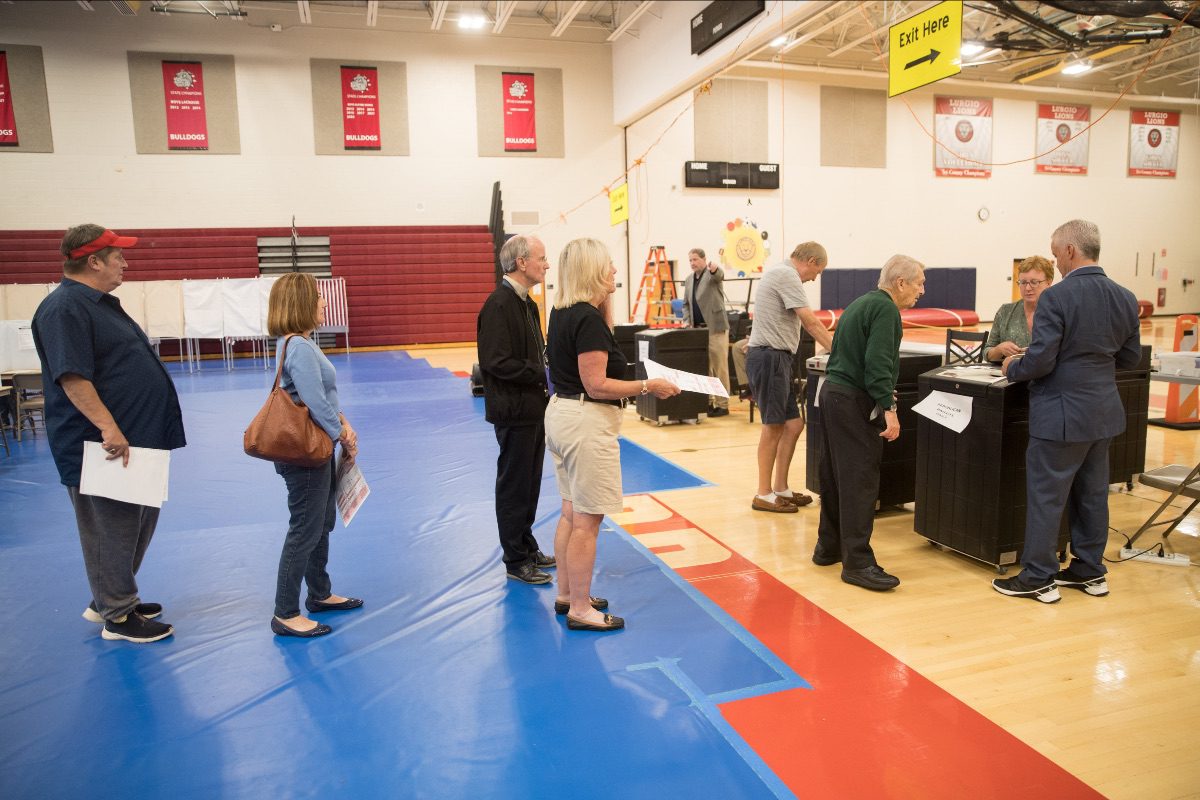Hands Off
A former White House official goes to prison. 🗳️

Published March 22, 2024
Trying to replace a modern voting system with a full hand count leads to significant obstacles for election officials. States United tackled the realities of that in a report released last month in partnership with The Elections Group. Now, that message is proving true in communities across the country. Local election officials agree.
This week in New Hampshire, eight more towns rejected ballot measures that sought to ban the use of voting machines in favor of counting ballots by hand. None of the votes were particularly close, either: one town voted against it 381 to 43. With only one exception, every town that has voted on the measure in recent weeks—twelve in all—has voted it down. New Hampshire Secretary of State David Scanlan said, “There was a lot of misinformation that was being spread. I think the general public saw through it, and the votes at those town meetings reflect that.”
The measures were placed on ballots after a group supported by prominent conspiracy theorist and Election Denier Mike Lindell attempted to ban voting machines statewide, one town at a time. As of this week, only 23 of the 55 New Hampshire towns they targeted have even presented the measure to be voted on.
And when it came time to vote, New Hampshire towns affirmed that they prefer counting votes as they always have: accurately, reliably, and securely, using voting machines. In Texas, an attempt in Gillespie County to hand count a party primary introduced mistakes and human error into the process, underlining the fact that voting machines are more accurate and reliable.
The remaining New Hampshire towns will vote on the proposed hand count measure soon, but as one town selectman said, “we have the utmost respect and confidence in our election officials and the process as it stands.”
➡️ READ: The Reality of Full Hand Counts: A Guide for Election Officials
This Week in Democracy
- Former Trump administration official Peter Navarro reported to prison on Tuesday to begin a four-month term. He was sentenced in January for refusing to comply with a subpoena to testify to the U.S. House January 6th Committee.
- Former President Trump asked the U.S. Supreme Court to grant him “absolute immunity from criminal prosecution” in the federal election interference case against him after a federal appeals court starkly rejected his argument. The court will hear arguments on April 25.
➡️ READ: Trump’s federal charges, explained
- The U.S. Supreme Court refused to hear a case that banned Couy Griffin, a former New Mexico county official who was convicted of participating in Jan. 6 attack, from ever holding elected office in the state again. Griffin was ruled to be ineligible under the 14th Amendment’s “insurrection clause.”
State of the States
In Georgia, Judge Scott McAfee granted a request from Trump and eight of his co-defendants to appeal last week’s decision denying their attempt to disqualify Fulton County District Attorney Fani Willis from prosecuting the election interference case against them. The defendants are likely to apply to the state Court of Appeals, which will have 45 days to decide whether to hear the case. In the meantime, Willis intends to continue moving the case forward and will ask McAfee to schedule a trial date as soon as this summer, according to CNN.
Sign up for our weekly newsletter for more here.